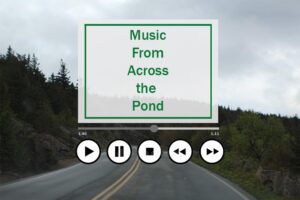The way that education is approached at the university level here in Chile is much different from that of the University of Maine. The program that I am in is hosted through the Universidad Andres Bello, which is a Chilean university, but the classes I am in are taught just for students from the United States. This being said, the teachers are all Chilean and all but one of my classes are taught completely in Spanish.
At UMaine, my typical week of classes has a significant amount of reading and homework assignments that are due either online or in class. Here in Chile, that is not nearly the case. A couple of my classes will assign a section of reading or research to do every week, but for the most part you learn everything you need to know in the actual classroom. This makes the attendance policy much more strict to ensure that you are getting what is required from the task.
The majority of my classes here have grades dependent on the midterm exam, the final, a couple papers throughout the semester and attendance. Being abroad, this is a much more convenient way of schooling; I’m taking 18 credits and it seems like this is one of my easiest semesters in terms of schoolwork. The lack thereof allows me to go and do things after class and on the weekends without worrying about all the work I have waiting for me. The main requirement is that I do not miss class and I write the essays by the time they are due.
Coming into the experience, I was highly concerned about having classes taught in Spanish, knowing that my level of Spanish was not as great as it should be. I was pleasantly surprised when I found that from the first day I had enough understanding to get the gist of what they were saying. The first couple of days, I struggled to understand some of my professors who have strong Chilean accents, but after having been in the class for a week or two, I got used to it. Now, after almost two months of classes, I understand almost every word said in class.
One cool thing about this experience studying abroad is that it gave me the opportunity to take classes that I never would have taken otherwise. This semester I am enrolled in a Latin American theater class, a class on technology and international relations in Latin America, a class on the indigenous groups in southern Chile and a class about Latin American culture, on top of my Spanish grammar classes. All my classes are taught by native Spanish speakers who are from Chile or another nearby country. Most of the teachers speak a little bit of English, but for the most part it is not used in class (with the exception of my one class that is taught in English).
It is not like that for everyone, though. One of the things that is unique about the program I am enrolled in is that not only do we have students from all over the U.S. enrolled in it, but we also have people with all levels of Spanish. There are people who are learning Spanish for the first time and a couple people who are of Latin American descent and have been speaking it since they were born. The diversity of the group allows you to practice with people of all levels and learn from each other. Even people in lower levels of Spanish will often learn a word that the rest of us do not know.
Just living in a different country is a learning experience, so having these classes where we learn even more about Latin America while learning more Spanish is what is allowing me to get the most out of this adventure.







